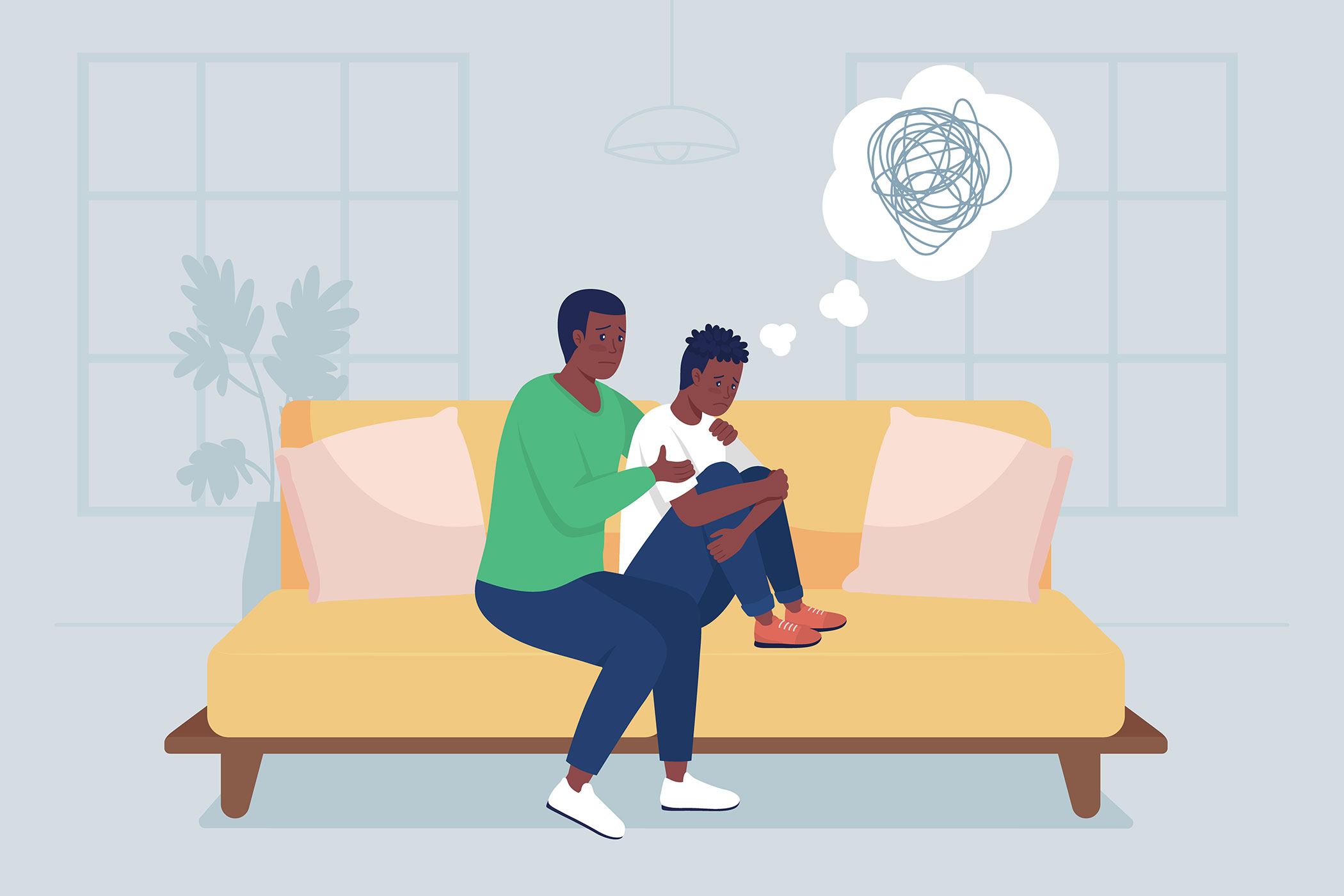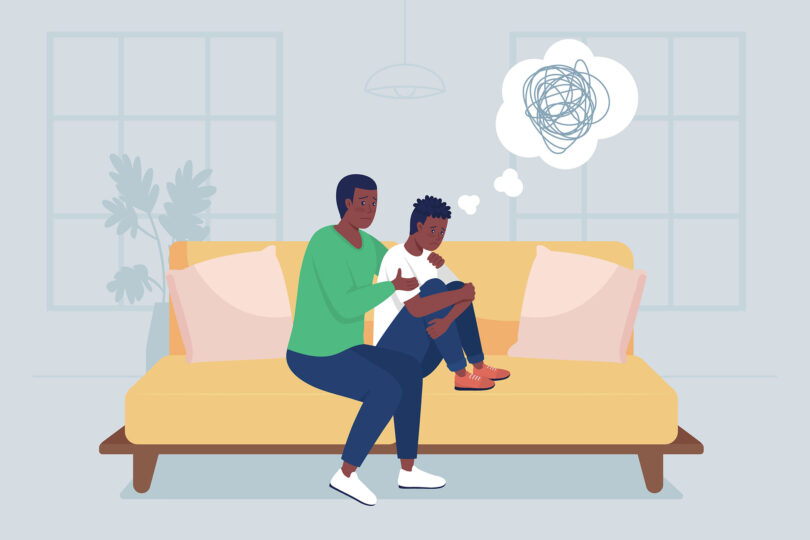
Young Black men are dying by suicide at alarming rates
New study suggests racism and childhood trauma may be to blame for high rates of suicidal thoughts among young African American men.
Health & Wellness • Society & Culture
Young Black men are dying by suicide at alarming rates
1 day agoby Leigh Hataway

Parents can play a key role in helping their children cope with racial discrimination, the researchers said. (Getty Images)
New study suggests racism, childhood trauma may be to blame for suicidal thoughts
One in three rural Black men reported they experienced suicidal ideation or thoughts of death in the past two weeks, reports a new study from the University of Georgia. Childhood adversity and racism may hold much of the blame.
Suicide is the second leading cause of death for African Americans between the ages of 15 and 24, according to the Centers for Disease Control and Prevention. Suicide is particularly prevalent among Black men, who die by suicide at a rate more than four times that of Black women.
It feels like nobody is talking about the problem. And it’s only getting worse.

Michael Curtis
“I think we often don’t look at where the disparities are and who the individuals most at risk are when we’re talking about suicide ideation,” said Michael Curtis, co-author of the study and a graduate of UGA’s Human Development and Family Science Department in the College of Family and Consumer Sciences. “We just know it’s bad, and particularly among young Black men.
“Historically, research has not invested a lot of time and effort in looking into what are the unique cultural contexts that make certain men more at risk for suicidal thoughts than other men.”
The study found that growing up in a low-resource environment and experiencing racial discrimination during young adulthood makes it difficult to engage in healthy, trusting relationships. Strong feelings of mistrust and caution toward social relationships can lead to feelings of isolation, which in turn can prompt thoughts of death and suicide.
Childhood trauma, racism take heavy toll on young Black men’s mental health
The researchers followed more than 500 African American men from their late teens through early 20s in rural Georgia.At three separate times over the course of several years, the men were asked to reflect on their childhood, including economic hardships and traumatic experiences.
Some of the questions included whether they experienced physical or emotional abuse, witnessed a relative being abused, felt loved and special, had enough to eat or had access to medical care when needed as a child.
We found when Black men were exposed to childhood adversity, they may develop an internal understanding of the world as somewhere they are devalued.” —Michael Curtis
Study participants were also asked about their feelings and beliefs about close relationships, such as trust in romantic partners, and concerns about being taken advantage of in relationships as well as how often in the past six months they had been treated unfairly because of their race.
Finally, the researchers asked the participants about depressive symptoms and how often they had thoughts about death or killing themselves in the past two weeks.
The researchers found that these childhood experiences with trauma, deprivation and racism took a heavy toll on study participants’ mental health as they entered adulthood.
“We found when Black men were exposed to childhood adversity, they may develop an internal understanding of the world as somewhere they are devalued, where they could not trust others, and they could not engage the community in a supportive way,” said Curtis, who practices as a licensed marriage and family therapist. “Engaging with social support is critical for young Black men who experience many challenges to success.”
Young Black men experience higher rates of poverty than white peers
Young Black men in general, and those living in rural areas in particular, are disproportionately affected by childhood adversity. They’re more likely to come from economically distressed families, grow up in low resource neighborhoods and experience trauma in their communities than their white peers.Previous research has shown that racial discrimination increases the risks for depression, anxiety and psychological distress among Black children, adolescents and adults.
Although childhood neglect and trauma played a role in predicting suicidal thoughts, the researchers found that racial discrimination independently predicted higher rates of suicidal thoughts.

Steve Kogan
That means even participants who reported positive childhood experiences but experienced racial discrimination in young adulthood had a more difficult time developing and maintaining healthy relationships. As a result of that lack of community, they were more likely to experience thoughts of suicide.
“The quality of our relationships is what sustains human beings,” said Steven Kogan, lead author of the study and a professor in UGA’s College of Family and Consumer Sciences. “For people who have suicidal thoughts, there’s this sense that no one knows me, nobody cares about me, there’s nobody there for me, I am alone.”
Healthy relationships can help prevent suicide, boost mental health
Those thoughts can set in quickly, and one of the biggest protective factors against suicide is healthy relationships, having someone to call when those feelings start to get overwhelming, the researchers said.“You don’t wake up one day and say, ‘You know, it would be better if I was gone.’ There are multiple factors in childhood and one’s current context that inform suicidal thoughts. To address these men’s needs, we have to address how racism in childhood and adulthood erodes mental health and well-being.”
Parents can play a key role in helping their children cope with these struggles, the researchers said.
“More research is needed, but one finding is unequivocal: Loving yourself as a Black person is foundational,” Kogan said. “Teaching children and youth to be proud of being Black counters the potential for them to internalize negative messages about Blackness that pervade U.S. society.”
Published by Cultural Diversity and Ethnic Minority Psychology, the study was co-authored by Ava Reck, a doctoral candidate in UGA’s Human Development and Family Science program, and Assaf Oshri, an associate professor in the College of Family and Consumer Sciences.
College of Family and Consumer Sciences Columns Research
